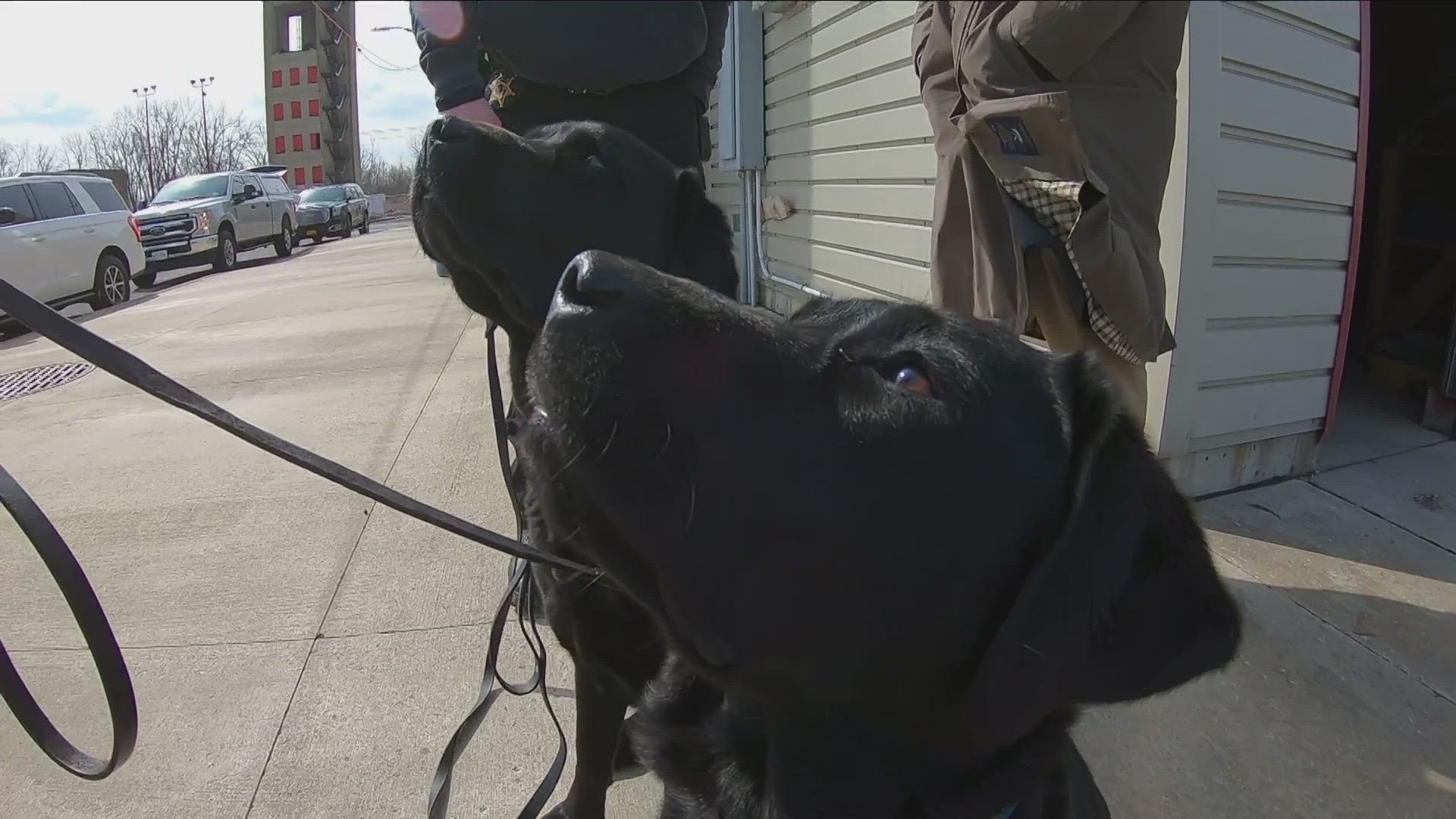BUFFALO, N.Y. — The Department of Alcohol, Tobacco and Firearms in Buffalo has two canines, one of whom also serves with the Erie County Sheriff's Office.
From the time 4-year-old K9 Jet and 6-year-old K9 Clipper were eight weeks old, they've been in training to make Buffalo safer.
It's all thanks to a program based out of New York City called Puppies Behind Bars, which has prisoners provide basic training to canines before they work with law enforcement.
"The premise is that incarcerated individuals can contribute to society even while incarcerated," said Gloria Gilbert Stoga, founder and president of Puppies Behind Bars.
Gilbert Stoga started the organization 25 years ago, when they were only training guide dogs.
After 9/11, the group started training canines for explosive detection.
"We obviously can't bring explosives into the prisons to teach them what they're sniffing for but what we do is the dog is just sniffing for their teddy bear," said Carl Rothe, director of the explosive detection canine programs for Puppies Behind Bars.
"The agencies that get our dogs actually take months off the training process for them which helps them get the dog on the street sooner."
Jet and Clipper then both went to Virginia for specialized training with the ATF.
Jet has been working with ATF special agent Jason Bernhard for the last two years.
"She can detect explosives as well as firearms so from crime scenes to pre-event sweeps, she plays an important role," Bernhard said.
One of their most recent pre-event sweeps was before the State of the Union in February.
On a daily basis, she's finding things no person ever could.
"She can detect over 19,000 explosive compounds," Bernhard said.
The same goes for Clipper, an accelerant-sniffing dog, who works with Detective Scott Kuhlmey, a fire investigator for the Erie County Sheriff's Office.
The 6-year-old lab recently searched for clues at DC Theatricks after a blaze there killed Buffalo firefighter Jason Arno.
"Accelerant canine detection dogs are incredibly valuable in any fire investigation both small and large," Kuhlmey said.
"We use them to detect whether ignitable liquids are present or if they aren't present."
When Jet and Clipper aren't acting like puppies, they continue their training, making their handlers' jobs easier and all of us that much safer.

